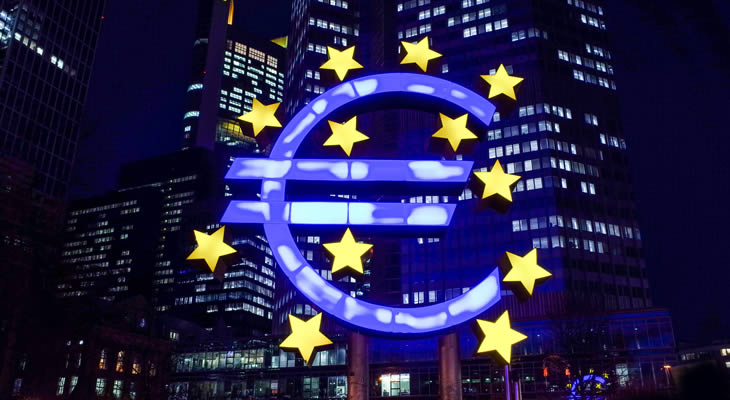Pound to Euro Exchange Rate Climbs despite European Central Bank’s (ECB) Optimism
Despite the European Central Bank (ECB) avoiding a dovish tone in yesterday’s June policy decision, the Pound Sterling to Euro (GBP/EUR) exchange rate has avoided losses. Instead, the pair is seeing resilience today as the Euro (EUR) falls in reaction to fresh German data.
Since opening this week at the level of 1.1280, GBP/EUR has seen largely mixed movement as both currencies are weakened by economic and political news.
GBP/EUR fluctuated between highs of 1.1332 and lows of 1.1240 throughout the week, but at the time of writing on Friday morning was trending near the level of 1.1281 – just around the week’s opening levels again.
The Pound (GBP) remains unappealing overall amid uncertainty over the UK leadership contest and Brexit jitters, but it has been able to gain versus a tumbling Euro (EUR) as investors show concern over Germany’s economic resilience.
Pound (GBP) Exchange Rates Edge Higher as Theresa May Stands Down as Conservative Leader
UK Prime Minister Theresa May’s time as leader of Britain’s ruling Conservative Party has come to an end, as today the Prime Minister officially stepped down as Party leader.
May will remain Prime Minister until a successor is officially chosen. The Conservative Party leadership contest will officially begin next week and will last through the coming month.
Boris Johnson, ex-Mayor of London and one of the figureheads of the Brexit campaign, is widely perceived as the front-runner of the contest. He has said that he would take the UK out of the EU on the 31st of October, with or without a deal.
Concerns that a no-deal Brexit would become more likely under the leadership of a hard Brexit advocate have kept pressure on the Pound outlook and have kept the British currency range-bound this week.
Euro (EUR) Exchange Rates Fall Back as German Factory Concerns Deepen
Yesterday afternoon, investors bought the Euro as the latest European Central Bank (ECB) policy decision surprised investors. The bank was less dovish than analysts expected despite delaying any possibility of a rate hike into 2020.
Many had predicted that due to recent weakness in Eurozone stats like inflation, the European Central Bank would hint that more quantitative easing (QE) was on the way, or that interest rates could be cut even lower.
However, ECB President Mario Draghi instead avoided becoming more notably dovish about the Eurozone outlook, and the bank’s 2019 growth and inflation forecasts were even revised higher.
The news surprised investors and led to a brief rise in Euro demand, but today’s German trade and factory data was disappointing enough to make investors more anxious about the Eurozone’s economic outlook again.
According to Carsten Brzeski from ING:
‘Let’s be clear, this is a horrible start to the second quarter for German industry, as global trade tensions as well as temporary problems in the automotive sector and chemical industry have left their marks.’
Pound to Euro (GBP/EUR) Exchange Rate Investors Await UK Leadership Contest and Eurozone Data
Is the Pound to Euro (GBP/EUR) exchange rate likely to see a notable shift in movement any time soon?
The pair has been range-bound since its steep May losses, and unless there is a major shift in the economic or political outlooks soon its potential for movement may be limited.
With the UK Conservative Party leadership contest expected to officially begin next week, Pound investors are most likely to react to developments in the contest in the coming month or so.
Some UK production and growth data will come in on Monday, followed by job market data on Tuesday, but unless they are particularly surprising political and Brexit news is more likely to influence Sterling.
As for the Euro, investors may react to any developments in EU-Italy budget tensions earlier in the week amid a lack of Eurozone data.
Towards the end of the week though, German and French inflation data, as well as Eurozone industrial production and trade balance stats, could cause some Pound to Euro (GBP/EUR) exchange rate movement.


Comments are closed.